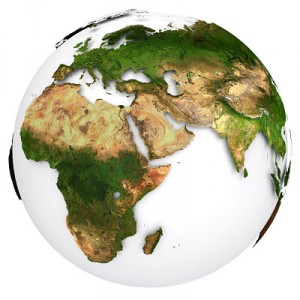Unilever’s African Operations

In Africa, there are many foreign corporations investing in and fueling industry, many of which are part of extractive industries that may not be economically beneficial for the continent in the long run. A company that stands apart from this ilk is Unilever.
Unilever is a British-Dutch multinational consumer goods corporation whose products reach 2 billion consumers in over 190 countries, making it one of the world’s top 500 largest corporations. Unilever has been in Africa for over a century and produces annual sales there of more than $5 billion, employing 40,000 people on the continent in offices and building factories in 40 locations.
This megalithic corporation has built an impressive reputation for itself. FORTUNE Magazine consistently recognizes Unilever among the World’s Most Admired Consumer Food Product Companies and in 2013 recognized Unilever as a Top 50 World’s Most Admired Company. Much of this admiration stems from the numerous gender diversity and environmental sustainability awards Unilever has garnered over the years.
Despite these accolades, criticisms are aplenty and certain truths are unavoidable. For example, Unilever’s biggest purchases are palm oil, soya, paper and beef. These are commodities whose global trade is responsible for 50 percent of global tropical deforestation, admitted Gavin Nearth, senior vice president of sustainability at Unilever.
Significantly, these criticisms are not necessarily thrown in a dark corner at Unilever with the hope that they will wither and die. There is an acknowledgement that the vast corporation’s practices have enormous environmental and social impacts that have not been, and still are not in many instances, sustainable.
Yet things do seem to be changing. In 2009, Paul Polman, previously an executive at Nestle and before, Proctor & Gamble, became Chief Operating Officer of Unilever. Within a year he introduced the Unilever Sustainable Living Plan, a series of goals that aim to transform the company by doubling its size while increasing its positive social impact and reducing its environmental footprint by 50 percent. Despite the worry of many stockholders, according to Financial Times, Mr. Polman believes that these goals are necessary to maintain a “license to operate” in an age of public scrutiny.
Increasing social impact includes increasing workplace rights, ensuring that women get a fair deal and improving health and well-being for more than 1 billion people. Reduction of Unilever’s environmental footprint entails ensuring that their products and supply chain meet environmental requirements covering everything from forest protection to pest control. The impact of working toward these goals will manifest in Unilever’s sizable African operation.
Furthermore, Unilever’s business model in Africa impacts the African poor. According to Frank Braeken, Unilever Executive Vice President for Africa, “There is a growing realization that the future of Africa is based around a consumer rather than mining. This is a consumer that has been under-served and over-charged.” For Mr. Braekan, there are hundreds of millions of untouched consumers, most of whom are low-income, known as bottom of the pyramid (BOP), consumers.
A method through which Unilever reaches BOP consumers is low unit packs (LUPs). These are small consumer goods, worth as little as half a cent. Small shop owners buy goods from Unilever companies in large packs and resell them in smaller portions.
LUPs is just one method by which Unilever plans to meet Africa’s poor and their needs. In conjunction with its vast operations on the continent and increasingly sustainable business model, Unilever will be able to be quite the developing force in Africa.
– Connor Bohannan
Sources: BDlive, Financial Times, How We Made It in Africa, Telegraph, Unilever
Photo: Telegraph
